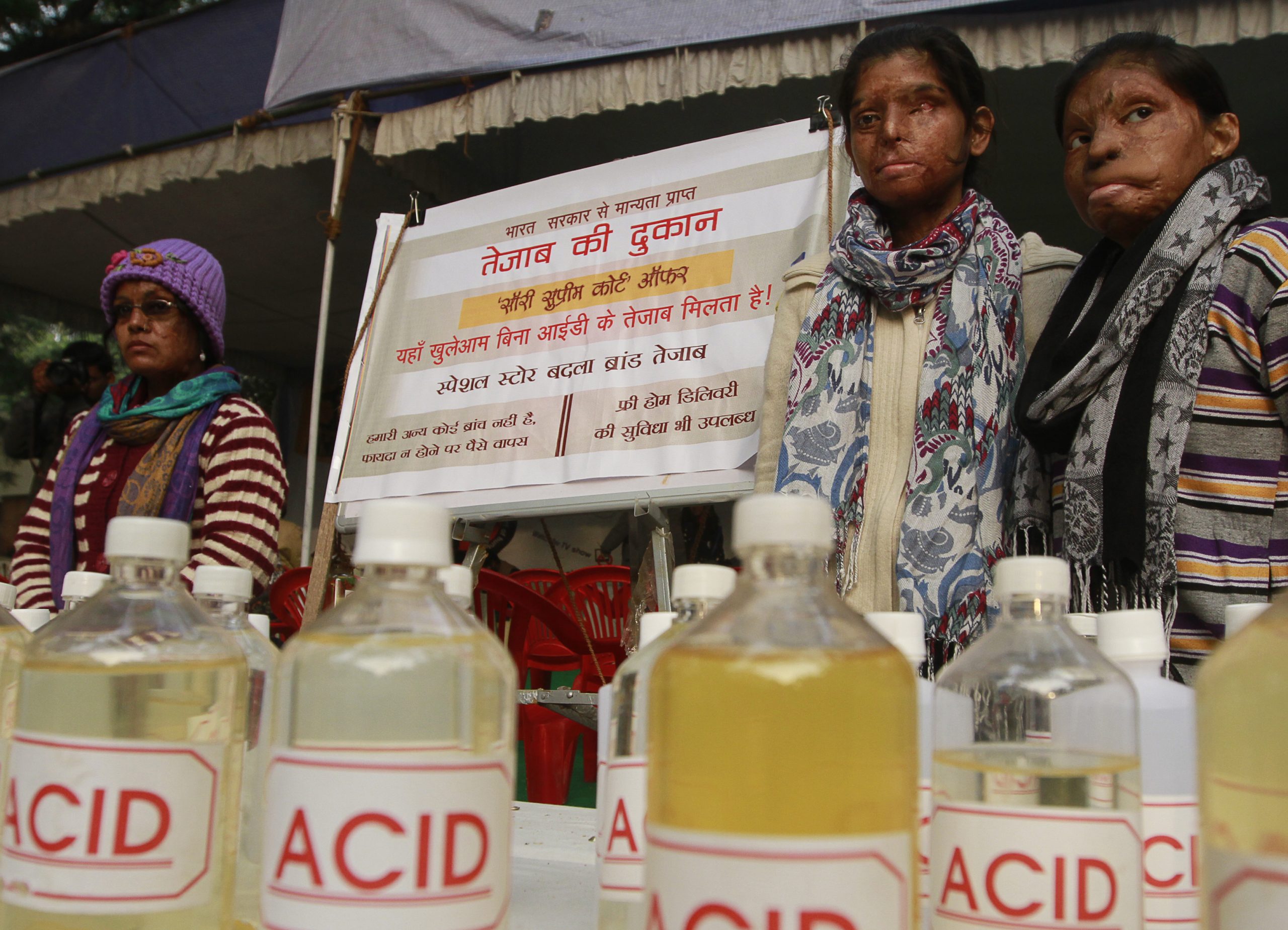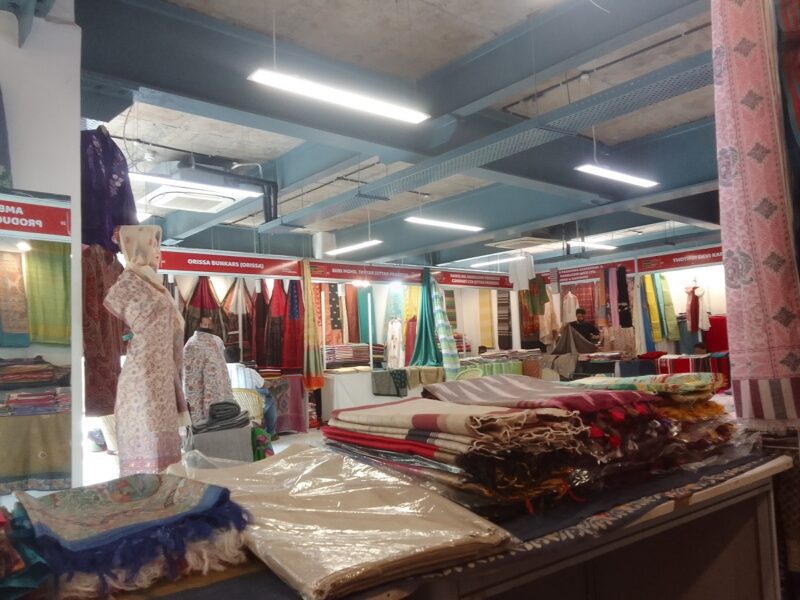Despite the severe consequences of acid attacks and the legal measures in place, activists argue that little has changed on the ground in India. Efforts to curb acid sales, regulate shops, and provide rehabilitation to survivors appear lackadaisical and ineffective.
Here we dissect the current state of affairs, addressing loopholes in regulations, the need for stringent administration, and the societal factors contributing to the persistence of acid attacks.
Regulatory gaps: Acid sales remain unchecked
Activists emphasise that the sale of acid is not banned but merely regulated and that too ineffectively.
According to Ashish Shukla, co-founder of Chhanve Foundation, the lackadaisical implementation of regulations contributes to the persistence of acid attacks.
The Supreme Court had in 2013 ruled that to sell acids, establishments require a licence and have to be registered under the Poisons Act. It underlined that owners of such shops must ask customers to disclose the reason for buying acid and furnish an identity proof.
However, it is largely ineffective, with little enforcement.
“There is no change as such. Acid is easily available to the extent that shopkeepers even yell about it to attract customers,” said activist Yogita Bhayana, who heads People Against Rape in India.
Lack of initiatives
Shukla contends that the local administration, including SDMs and the police, is aware of acid sales but fails to crack down on offenders.
“Every law has loopholes, but even then, if they are implemented well, crime can be eliminated. For this, the administration has to be strong. When an incident of acid attack takes place, the whole approach of investigation is to just catch and convict the culprit. However, the source of the crime lies in its sale and the administration never tries to reach the root cause,” said Shukla.
He added that if there was better awareness about the regulations and a fear of law, no one would procure acid easily.
“For example, you don’t see illegal weapons being bought and sold openly in markets, but that is not the case for acid despite it being a tool to destroy a life,” he added.
Yogita said that administration should just pick the sellers and penalise them as per the law.
“Everyone knows that buying drugs is illegal and thinks twice before indulging in it, but they will buy acid in a blink of an eye. Sellers also don’t ask for IDs because there is absolutely no crack-down.”
She highlights a lack of accountability and suggests that responsible citizens may stop buying acid, but those with criminal intent continue to acquire it easily.
Lack of rehabilitation programmes
Acid attack survivors endure a perpetual cycle of trauma, facing numerous surgeries and exorbitant medical costs.
Yogita emphasises the government’s minimal role in supporting survivors, citing delayed compensation and limited efforts to integrate them into regular society.
“Acid survivors go through an endless cycle of trauma from the time of the attack to the rest of their lives. They have to go through uncountable surgeries that cost lakhs because you cannot get the cosmetic surgeries done in one go. You have to keep coming back for every inch of the skin,” she said.
“There are so many surgeries required on an acid attack survivor that one would be exhausted only by the thought of it. Starting from replacement of dentures to skin textures to bones — they need multiple visits to the hospital. I have personally seen 45 surgeries on one survivor. It is an ocean of trauma and miseries. This is the worst thing to live with because you exhaust all the funds,” she said.
Even the compensation they get comes after several appeals and that is just a small amount of money as opposed to what they actually need, she added.
“They don’t get employed easily because people reject them. The government has not come forward to integrate them in regular lives.”
According to her, the easiest way to mainstream acid survivors is to bring them into the public forum. The society then will have to accept them.
“It’s good that there are organisations that employ them in back-end jobs or in cafes run by them. But the main reform in the society will begin when having them around is normalised. Why just the back-end?”
Drop in social awareness
Yogita notes a decline in social awareness campaigns with a shift towards more political advertisements and a glorification of alpha masculinity in entertainment. The once prevalent messages promoting a better society have dwindled, attributing it to the ineffectiveness of current initiatives.
“Earlier also these kinds of films existed, however, there was a strong pushback against such culture, but that is now diminishing fast. Besides, if one can motivated and inspired by good characters, then how come it is unbelievable that glorification of such male characters can create potential criminals, especially in a society that is not rigorously working towards education,” she wondered.
Shukla draws attention to the influence of commercial films that portray violent, abusive men as heroes, contributing to the normalisation of crime.
“We get information of at least 10 acid attack cases across the country every day. 75% of the victims are women. Today’s politicians and even law enforcement agencies are hell bent on photo ops than executing social policies. There are more hoardings than action on the ground. Policies are limited to announcement. The only intention of the administration is to eyewash people, but crimes have increased manifold.”
He further said that change has to begin at home.
“You walk out of your house as a lawmaker and make tall claims in public forum, but you come back home as a violent man who encourages his son to become that toxic hero. You are just sheltering crimes under your roof.”
Shukla also said that people watch these films because they can relate to these characters.
“Commercial film-makers do enough ground research before they decide on the subject of the film and its characters. They study the audience and the current social environment of the country. Therefore, films that portray violent abusive men as heroes and glorify crimes are a mirror actually. Usually these are also the films that are box office hits because criminals live among us and they go to the theatre and find themselves on the screen.
“You won’t see a beeline for films like Masaan, Chhapaak or Ankho Dekhi, but tickets will run out for Animal.”





